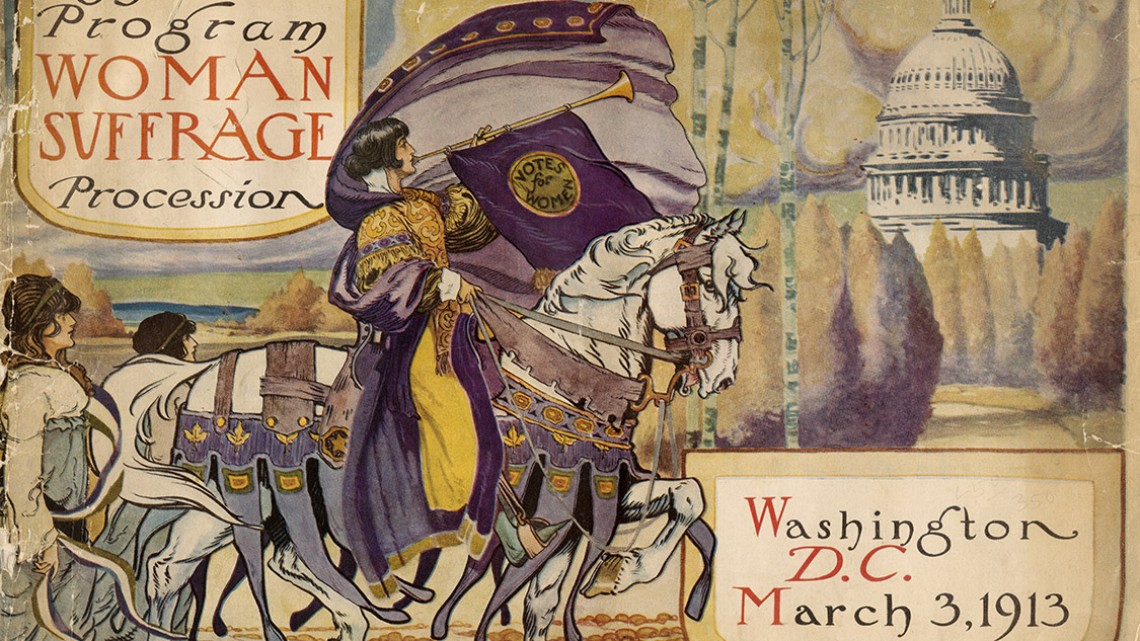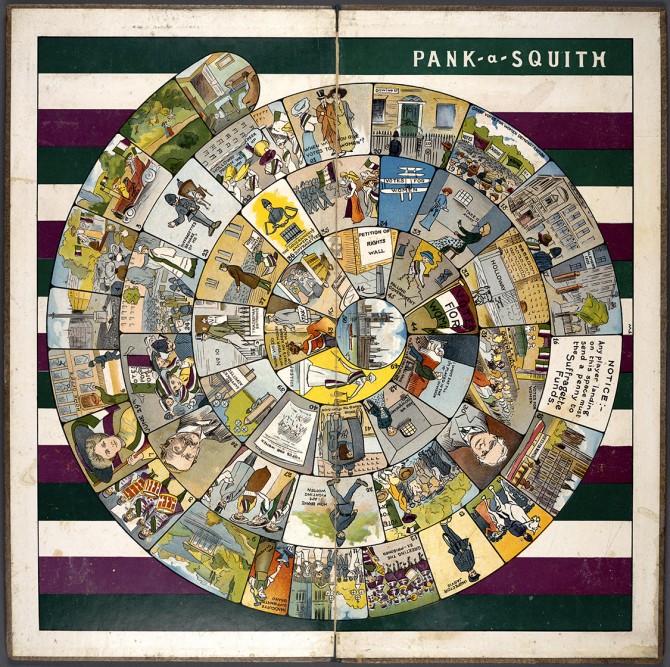
The Jon A. Lindseth Suffrage Collection, Cornell University Library Program from the momentous 1913 suffrage “procession” in Washington, D.C.
Documenting suffrage’s struggle
By Melanie Lefkowitz
The battle for women’s right to vote raged for decades – through marches and rallies, songs and hymns, posters and postcards, hunger strikes, slogans and speeches.
Today, hundreds of artifacts documenting this struggle are preserved in Cornell University Library’s Division of Rare and Manuscript Collections. Donated to the library by Jon and Virginia Lindseth ’56, these items bring to life the people and stories behind the suffrage campaign.
Upon suffrage’s passage in New York state in November 1917 (three years before the 19th Amendment granted the same rights nationwide), Cornell Professor Flora Rose said: “I do not think we are going to reform everything, but I do think it is going to do a great deal for us. We are going to feel obligated to inform ourselves on political questions and to study political science. Instructors will be more interested in teaching women in those classes and we will be at last recognized as citizens of the United States.”
Among the highlights of the Jon A. Lindseth Suffrage Collection are photographs and letters from leading suffragists such as Susan B. Anthony, Carrie Chapman Catt and Anna Howard Shaw, and a program from the momentous 1913 suffrage march in Washington, D.C.
Pins, ribbons and leaflets trace the movement’s progression as its leaders became increasingly adept at spreading their message. A colorful poster of Inez Milholland Boissevain, depicted in flowing white robes on horseback, commemorates her martyrdom for the cause – Boissevain died in 1916 after collapsing onstage during an arduous speaking tour.
Across the Atlantic, some women adopted more militant methods, such as hunger strikes following their arrests at protests. Pank-a-Squith, a German suffrage game from around 1910 where the goal is to reach the Houses of Parliament, was designed to be funny but also evokes the darker side of the campaign, with images of police violence against rallying women and the force-feeding of hunger-striking women in jail.
In England, suffragists awarded medals to the women who underwent force-feeding during hunger strikes, and one such medal in Cornell’s collections, from 1912, reads: “Presented to Dorothy Bowker by the Women’s Social and Political Union in recognition of a gallant action whereby through endurance to the last extremity of hunger and hardship, a great principle of political justice was vindicated.”
More information and images from the collection can be seen at rmc.library.cornell.edu/footsteps/exhibition/collectorstoday.
Melanie Lefkowitz is staff writer, editor and social media coordinator for Cornell University Library.
This story originally appeared in the fall 2017 issue of Ezra magazine.
Media Contact
Get Cornell news delivered right to your inbox.
Subscribe
